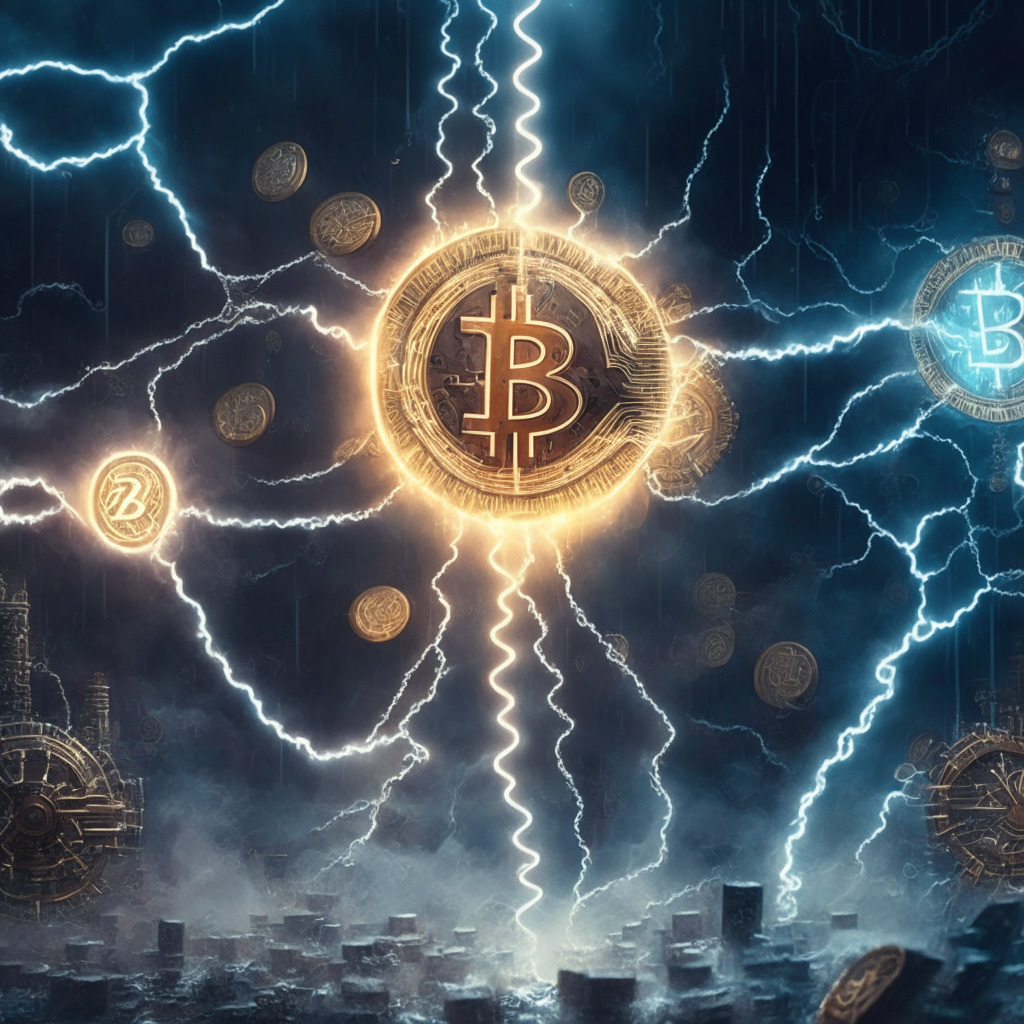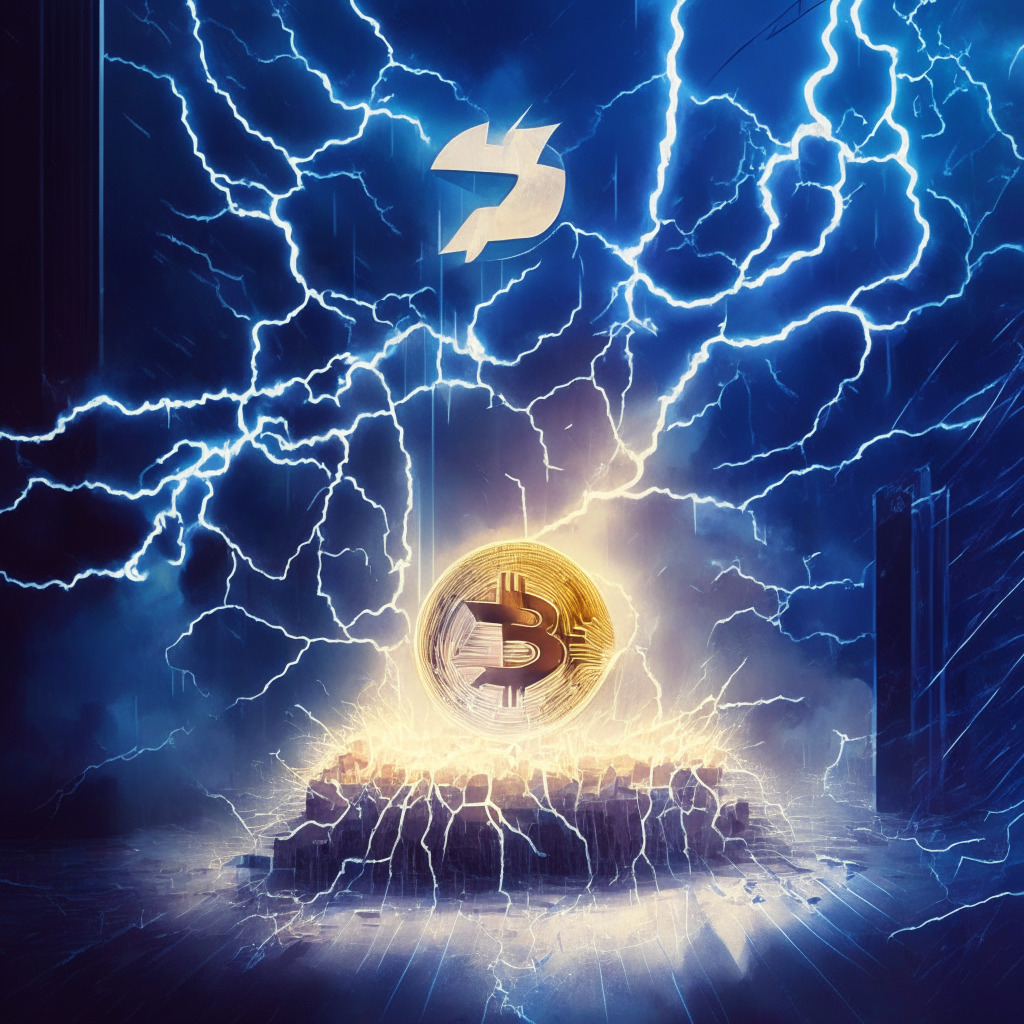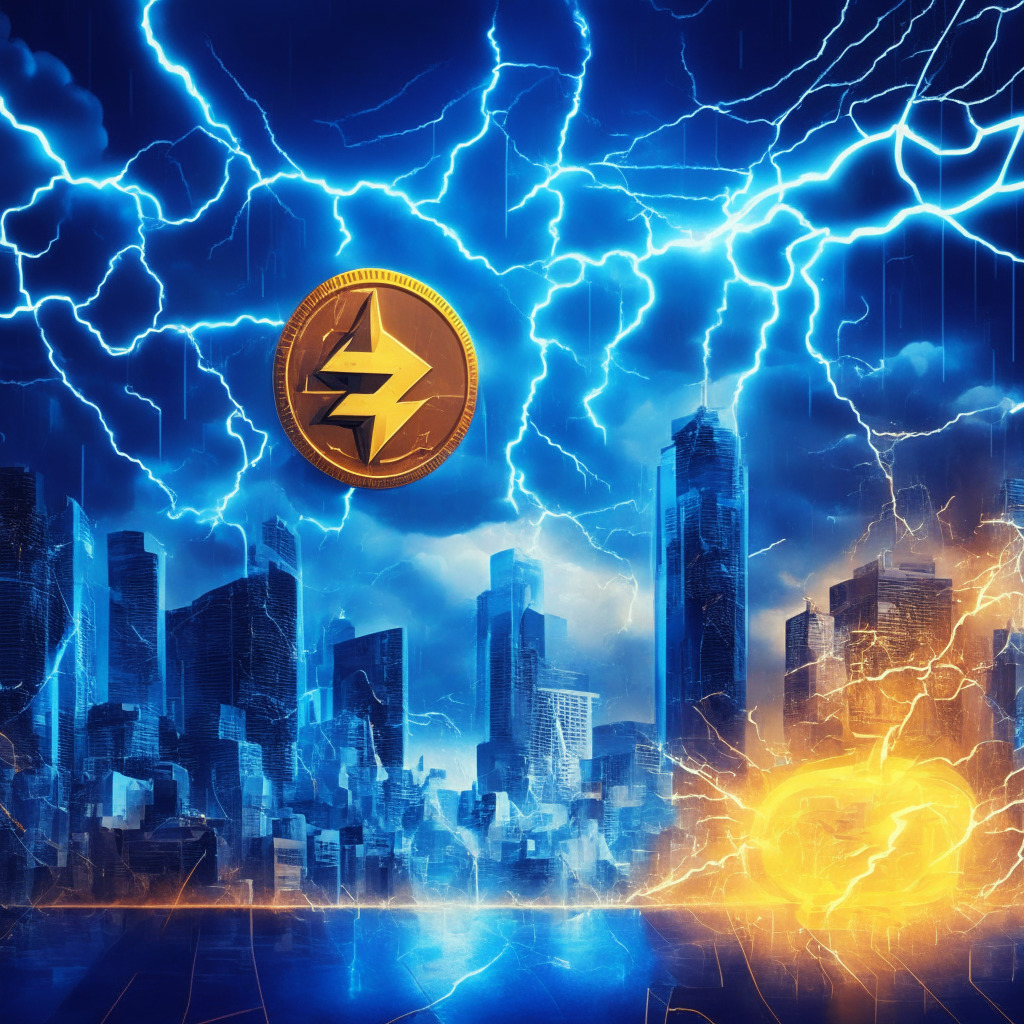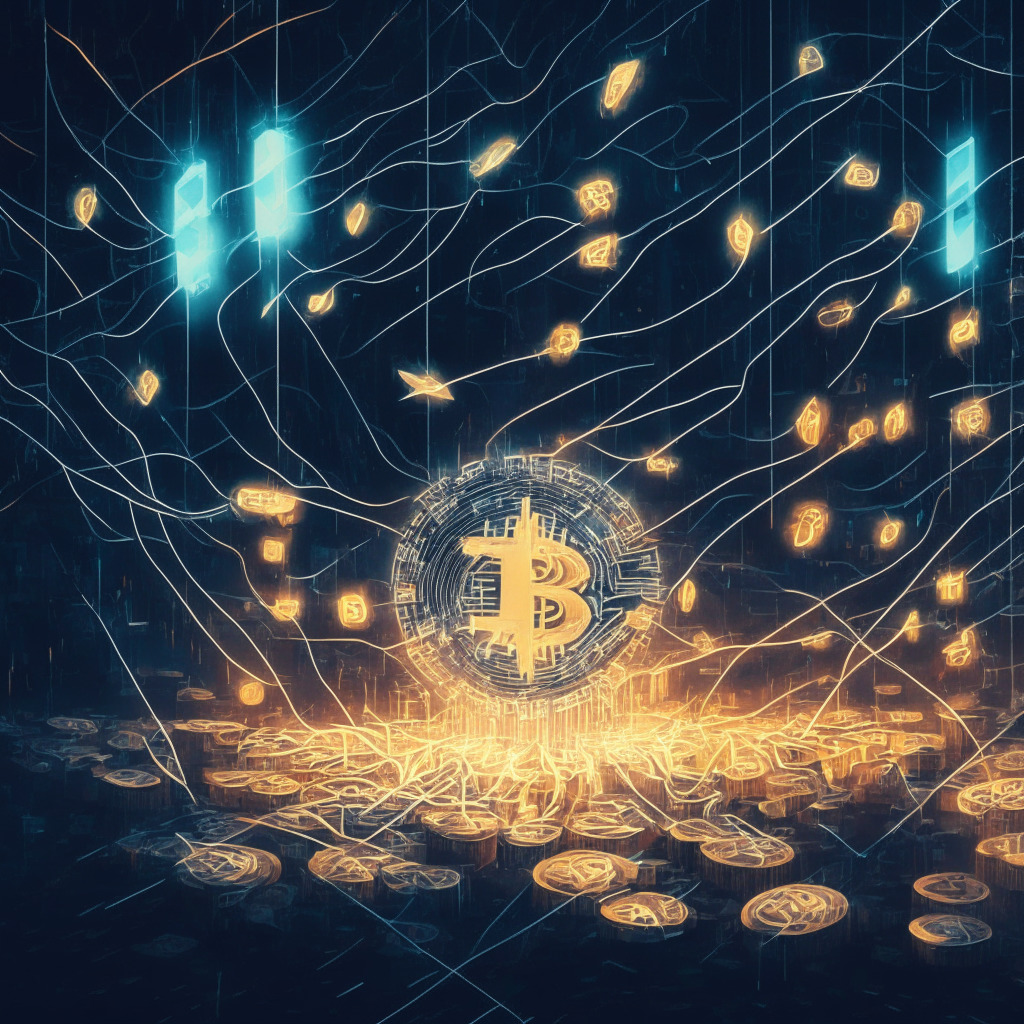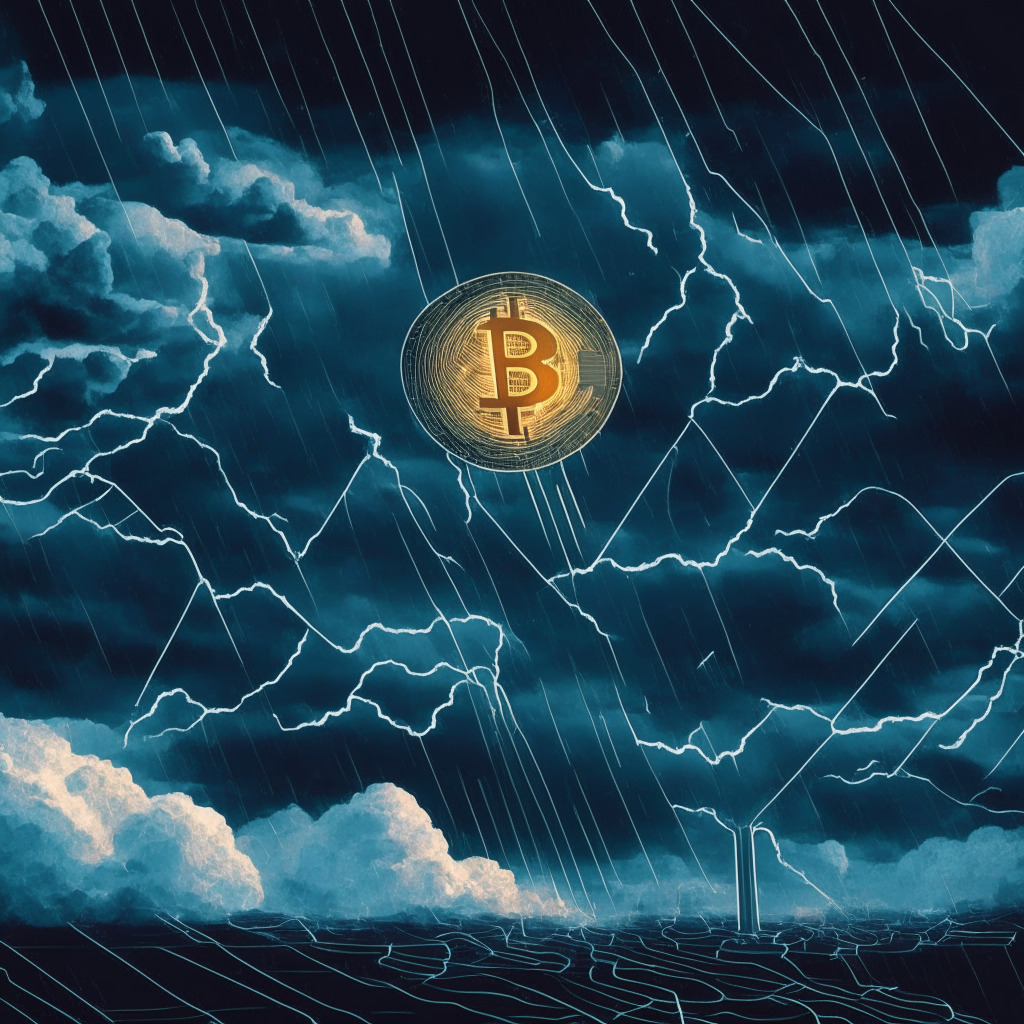Safeguarding assets from routing attacks is crucial in the crypto ecosystem, particularly for the Lightning Network. These attacks exploit network vulnerabilities for personal gain and can undermine network efficiency. However, preventive measures are in place, including network surveillance tools, diligent upgrades, diversified channels, and community participation to enhance security. Users must maintain vigilance and understand the risks and safeguards.
Search Results for: Lightning
Coinbase Embraces Lightning Network: A Leap towards Expedited Blockchain Transactions
Coinbase’s CEO, Brian Armstrong, has confirmed plans to integrate the Lightning Network – a Bitcoin-based payment system that promises faster transaction processes – into their services. Armstrong’s support for Bitcoin and this integration reaffirms his stance on Bitcoin being “the most important asset in crypto.”
Coinbase CEO Confirms Lightning Network Integration: A Strategic Move to Enhance Transaction Efficiency
Coinbase CEO, Brian Armstrong, recently announced the firm’s plan to bring the Bitcoin Lightning Network into its operations. This second-layer solution improves transaction speeds, enabling competition with more efficient solutions. Coinbase’s move is expected to give them a competitive advantage in the increasing crypto market competition.
Coinbase and Binance Embrace Bitcoin Lightning Network: A Boon or a Bane?
Coinbase, a major cryptocurrency exchange, has confirmed plans to incorporate the Bitcoin Lightning Network (LN), aiming to solve Bitcoin’s scalability problems. This decision, which surprised some industry bigwigs, signifies a commitment to enhancing transaction speed and reducing fees for Bitcoin, the largest cryptocurrency. Moreover, concerns were raised about misleading metrics often used to gauge a cryptocurrency’s health.
Using Bitcoin’s Lightning Network for Offline Transactions: The Future or a Fallacy?
“LNMesh, a Florida-based startup, proposes the use of Bitcoin’s Lightning Network for transactions without internet. The solution utilizes local mesh networks for devices to connect directly, allowing for off-chain Lightning payments across nodes in an offline manner using Raspberry Pi computers.”
Advancing Bitcoin Payments: The Future of Lightning Network and Its Impact on Crypto Exchanges
“Influential figures discuss the potential of Bitcoin’s Lightning Network (L2). CEO of Coinbase, Brian Armstrong, shares ventures for incorporating L2 into their platforms, enhancing Bitcoin scalability, security, and transaction speed. L2 promises profound benefits such as low-cost transactions, faster payment settlements, and user anonymity.”
Bitcoin Lightning Network: Coinbase’s Game Changer or Risky Adventure?
Coinbase, a leading cryptocurrency trading platform, plans to incorporate Bitcoin’s Lightning Network to its services. This innovative second layer for Bitcoin transactions leverages micropayment channels to accelerate transaction speeds and reduce costs, potentially transforming Bitcoin as a payment method. However, security concerns and technical challenges lie ahead.
Binance’s Integration of Bitcoin Lightning Network: A Forward Leap or Cause for Concern?
Binance has successfully integrated the Bitcoin Lightning Network, a secondary layer solution addressing scalability, for faster, cheaper transactions. Despite recent transaction backlogs, technical issues, and rumors about layoffs, this development adds a new layer of user security, sparking optimism among crypto enthusiasts.
Lightning Strikes Binance: Speedy Transactions vs. Increased Complexity and a New Stablecoin on the Block
“Cryptocurrency exchange Binance has successfully incorporated the Bitcoin Lightning Network, enhancing Bitcoin transactions by enabling faster, cheaper off-chain transaction channels. In related news, decentralized finance protocol Aave has launched GHO, a dollar-pegged stablecoin, introducing a transparent, verifiable, over-collateralized asset into the crypto market.”
Exploring the Convergence of Bitcoin and AI: Lightning Labs’ Pioneering Solutions
Lightning Labs is developing a suite of tools aimed at promoting the integration of Bitcoin and AI applications. Key features include the LangChainBitcoin and L402 HTTP API Traversal, as well as Aperture, which turns any API into a pay-per-use resource. These tools could provide new revenue streams, despite potential for increased end-user fees due to fraud expenses.
Unveiling the Future of Blockchain: Sega’s Pause, Bitfinex’s Recovery, DAO Halts and Innovations in Bitcoin’s Lightning Network
“Sega withdraws from blockchain gaming to avoid content devaluation. Bitfinex recovers more stolen assets from the 2016 hack. BarnBridge DAO halts all activities due to SEC’s investigation. Lightning Labs introduces tools for AI and Lighting developers. Moreover, AFME calls for DeFi’s inclusion in MiCA regulatory framework.”
Nodeless Lightning Processor: Revolutionizing Bitcoin or Regulatory Risk?
Nodeless, a Lightning payment processor, simplifies Bitcoin transactions for merchants without requiring personal information (non-KYC). However, the centralized nature of Nodeless could bring regulatory risks. The company plans to operate in El Salvador for a lenient approach to cryptocurrencies. Despite concerns, Nodeless captures growing demand for accessible, innovative blockchain solutions.
Binance Embraces Bitcoin Lightning Network: Scalability vs Centralization Risks
Binance is operating nodes on the Bitcoin Lightning Network to address network congestion and improve transaction speed. The integration aims to make Bitcoin transactions more efficient, but faces challenges, including centralization concerns. Meanwhile, Binance navigates a legal battle with the SEC.
Binance Embraces Lightning Network: Speed vs Centralization Concerns
Binance confirms plans to integrate the Bitcoin Lightning Network, a layer-2 scalability solution for rapid and low-fee transactions. This move follows transaction processing issues in May and aims to make deposits and withdrawals on Binance’s platform faster and easier.
Binance Lightning Network Integration: Fast Transactions vs Blockchain Security Risks
Binance, a leading crypto exchange, is working towards integrating Bitcoin’s Lightning Network for faster and cheaper transactions. Despite no set timeline for completion, this move highlights the network’s growing popularity among users and exchanges, while also raising concerns regarding potential risks to blockchain security and decentralization.
Binance Lightning Integration: Future of Crypto or Centralization Concern?
Binance’s move to incorporate Lightning nodes for Bitcoin transactions addresses network congestion issues and promises faster transaction times with minimal fees. Although the Lightning network offers improvements, concerns on scalability, security, and decentralization still persist in the crypto community.
Binance Integrates Bitcoin Lightning Network: Boost for Faster Transactions or Limited Adoption?
Binance plans to integrate the Bitcoin Lightning Network for faster, cheaper transactions, addressing scalability issues. Despite its potential, the Lightning Network’s liquidity is less than 0.5% of Ether locked in DeFi contracts, raising questions about mainstream adoption and its impact on cryptocurrencies and cross-border payments.
Binance Integrates Bitcoin Lightning Network: Boon or Bane for Users?
Binance is integrating the Bitcoin Lightning Network for quicker deposits and withdrawals, addressing recent challenges with pending BTC withdrawals. This move will enable faster, more scalable Bitcoin transactions, reduced transaction costs, and improved efficiency, though some potential network drawbacks remain.
Unlocking Lightning Network Yields: Amboss Liner’s Impact on Liquidity and Security Concerns
Amboss, an analytics firm, introduces Lightning Network Rate (Liner), a platform that offers insights into yield opportunities on the Lightning Network. Liner, along with Magma liquidity marketplace, aims to create a healthier ecosystem for liquidity providers and purchasers while addressing security concerns and promoting self-custodial options in the crypto community.
Lightning Index Rate (LINER): A Game Changer for Enterprise Adoption of Bitcoin’s Network?
Amboss introduces the Lightning Index Rate (LINER) to attract enterprises to Bitcoin’s Lightning Network by offering insights into cost and yield comparisons with traditional financial institutions. The index eliminates credit risk and provides cost advantages over legacy systems, potentially incentivizing businesses to switch to Lightning Network usage.
Lightning Network: A True Scaling Solution or Overhyped Innovation? Pros, Cons, and Conflicts
The Lightning Network, a Bitcoin layer 2 protocol, aims to address Bitcoin’s scaling issues, such as high transaction fees and slow blocks. While promising, it remains experimental, and a more pragmatic view suggests that it may not solve all types of transactions. Diversified thought and constant innovation keep the cryptocurrency space robust and resilient.
Ark Protocol: Revolutionizing Inbound Liquidity and Complementing Bitcoin’s Lightning Network
Burak Keceli, a self-taught Bitcoin developer, has proposed a new layer 2 protocol called Ark that aims to solve Lightning Network’s “inbound liquidity” problem. Ark utilizes service providers to offer continuous liquidity services for a fee, potentially complementing, rather than competing with, the Lightning Network.
Binance CEO on Lightning Network, Mining, and Global Crypto Regulations
Binance CEO Changpeng “CZ” Zhao discusses the importance of Lightning Network integration for crypto exchanges, mining operations, regulatory challenges, and the need for investors to research before investing in meme coins, NFTs, or metaverse projects. Favorable crypto regulations cited in UAE and Hong Kong.
Mexico Embraces Bitcoin Lightning Payments: Analyzing Potential Impact and Challenges
Mexico’s top internet service provider, Total Play, integrated Bitcoin Lightning payments, increasing transaction speed and efficiency. This significant step towards complete institutional adoption of cryptocurrency allows Mexican users to pay internet bills with BTC via Total Play’s Lightning-based payments.
MicroStrategy’s BTC Wallet and Lightning Adoption: Game Changer or Overhyped Solution?
MicroStrategy plans to introduce a Bitcoin wallet and Lightning address for corporate account holders, aiming to facilitate efficient development and deployment of bitcoin rewards applications. The Lightning Network, seen as a game-changer, is expected to drive Bitcoin mainstream adoption. As more fintech firms embrace cryptocurrencies, MicroStrategy’s move could significantly upscale BTC adoption.
Soaring Bitcoin Fees: A Barrier to Adoption or Push Towards Lightning Network?
Bitcoin network fees reached a two-year high of $31.14 per transaction due to surging interest in NFT-like assets and increased network traffic, raising concerns about Bitcoin’s usability for everyday transactions. The Lightning Network offers a lower-fee alternative, but ongoing challenges lie in balancing transaction practicality against growing demand and usage.
Soaring Bitcoin Fees Push Africa Towards Lightning Network and Stablecoins: Boon or Bane?
Bitcoin users in Africa increasingly adopt the Lightning network and stablecoins as transaction fees soar to a two-year high. The shift in demand results from rising costs on the base layer, leading customers to prefer stablecoins like USDT or opt for faster, low-volume Lightning network transactions. However, challenges persist with instability in wallets, limited exchange support, and congestion. Despite setbacks, this situation could encourage further integration of the Lightning network and growth in the long-term.
Binance and Lightning Network: Transforming BTC Transactions Amid Rising Fees
Binance plans to implement the Bitcoin Lightning Network (LN) to enable faster BTC withdrawals and bypass congested Bitcoin blockchain. The LN, already in use by Bitfinex, River, and Kraken, provides cheap, fast payments, attracting US and European exchanges. However, payment failures remain possible as the LN grows.
Lightning Network: Revolutionizing Speed and Efficiency in Crypto Transactions
The Lightning Network (LN) aims to address Bitcoin’s slow transaction speed by enabling high-volume micropayments with near-instant times, minimal fees, and a capacity of 1 million transactions per second. However, concerns like manual address entry errors and ongoing refinement warrant caution. LN has garnered attention from companies like Kraken and Coinbase, but debates on LNURL adoption persist.
Binance Resumes Withdrawals Amid Network Congestion: Lightning Network as Solution?
Binance resumed Bitcoin withdrawals after a temporary pause due to network congestion but delays in transaction verifications may persist. The exchange is exploring the use of Bitcoin’s Lightning Network to speed up withdrawal times in the future.
Upgraded Litd Unleashes Non-Techies on Lightning Network: Friend or Foe to Bitcoin’s Scaling Solution?
Lightning Labs has recently upgraded Litd, enabling non-technical users to operate their own Lightning Network […]
Kennedy’s Bold Crypto Agenda: An Independent Run for Presidency Powered by Bitcoin
“Robert F. Kennedy Jr., a Bitcoin supporter, announced his independent candidacy for presidency. Among his platforms is a positive stance on cryptocurrencies, including campaign finance via Bitcoin, tax exemptions for Bitcoin investors, and potential backing of the U.S. dollar with Bitcoin.”













